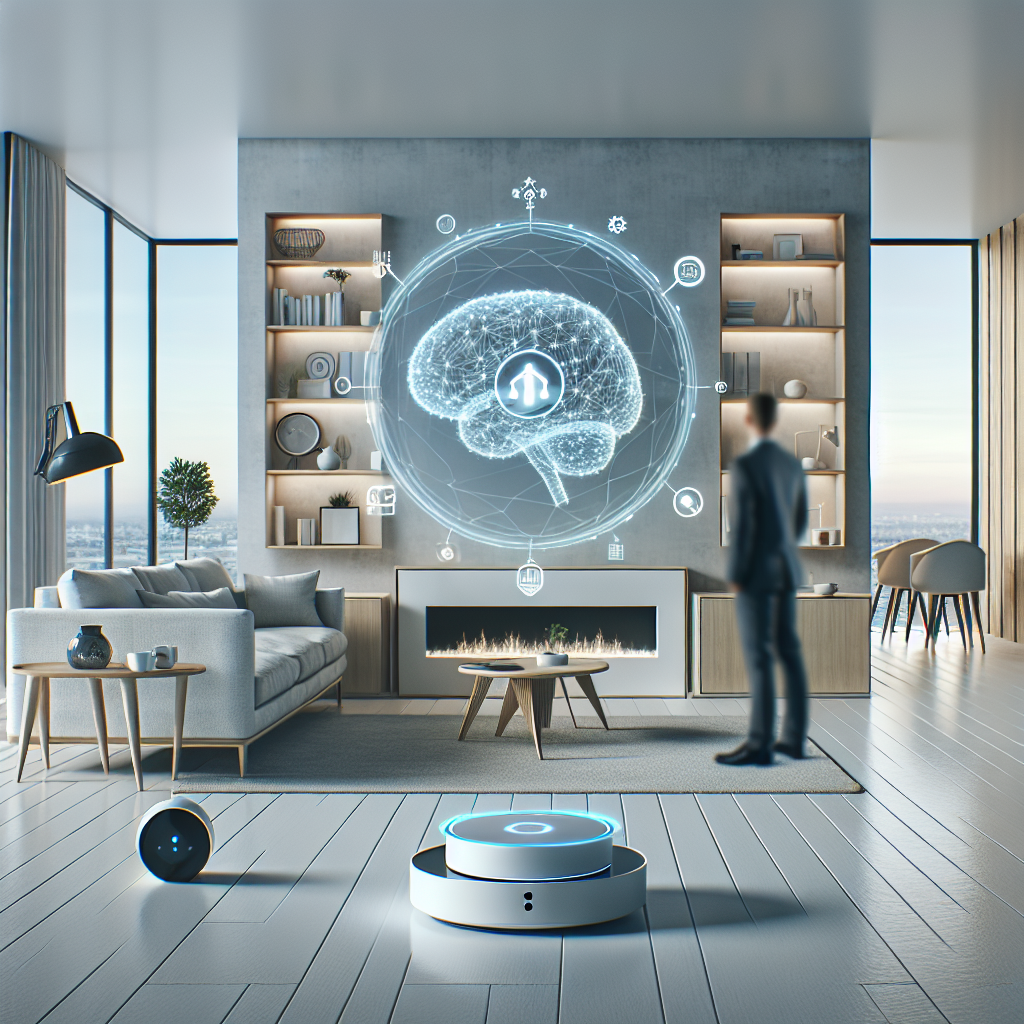As technology continues to advance, the concept of smart home technology has become increasingly popular. Smart home technology allows homeowners to control various aspects of their home, such as lighting, temperature, security, and entertainment, all from a single device or app. One of the key components of smart home technology is artificial intelligence (AI) automation, which enables devices to learn and adapt to the homeowner’s preferences over time.
Implementing AI automation in smart home technology and Internet of Things (IoT) devices for home automation offers a wide range of benefits, including increased convenience, energy efficiency, and security. In this article, we will explore the ways in which AI automation is transforming the smart home industry and how homeowners can leverage this technology to create a more connected and intelligent living space.
The Role of AI Automation in Smart Home Technology
AI automation plays a crucial role in smart home technology by enabling devices to learn from user behavior and make decisions autonomously. This allows for a more personalized and intuitive user experience, as devices can adapt to the homeowner’s preferences and anticipate their needs.
One of the key benefits of AI automation in smart home technology is increased convenience. For example, AI-powered smart thermostats can learn the homeowner’s schedule and adjust the temperature accordingly, ensuring maximum comfort and energy efficiency. Similarly, AI-powered lighting systems can automatically adjust the brightness and color temperature based on the time of day and the homeowner’s activities.
AI automation also plays a vital role in enhancing security in smart homes. AI-powered security cameras can detect unusual activity and send alerts to the homeowner’s smartphone, allowing them to take immediate action. Additionally, AI algorithms can analyze patterns in the homeowner’s behavior and alert them to any anomalies, such as a door left unlocked or a window left open.
Energy efficiency is another key benefit of AI automation in smart home technology. By analyzing data from sensors and devices, AI algorithms can optimize energy usage and reduce utility bills. For example, AI-powered smart thermostats can adjust the temperature based on occupancy and weather conditions, while AI-powered lighting systems can automatically turn off lights in unoccupied rooms.
Implementing AI Automation in IoT Devices for Home Automation
IoT devices play a crucial role in smart home technology, as they enable devices to communicate and interact with each other. By implementing AI automation in IoT devices, homeowners can create a more seamless and integrated smart home experience.
One of the key challenges in implementing AI automation in IoT devices is the need for interoperability and compatibility. As smart home devices come from different manufacturers and use different communication protocols, it can be challenging to ensure that they work together seamlessly. To address this challenge, homeowners can use a smart home hub or platform that supports multiple devices and protocols, allowing them to control all their devices from a single interface.
Another challenge in implementing AI automation in IoT devices is data privacy and security. As smart home devices collect a wide range of data about the homeowner’s activities and preferences, it is essential to ensure that this data is protected from unauthorized access. Homeowners can protect their data by using strong passwords, enabling encryption, and regularly updating their devices’ firmware.
FAQs
Q: How does AI automation in smart home technology improve energy efficiency?
A: AI automation in smart home technology can improve energy efficiency by analyzing data from sensors and devices to optimize energy usage. For example, AI-powered smart thermostats can adjust the temperature based on occupancy and weather conditions, while AI-powered lighting systems can automatically turn off lights in unoccupied rooms.
Q: How can homeowners ensure data privacy and security when implementing AI automation in IoT devices?
A: Homeowners can ensure data privacy and security when implementing AI automation in IoT devices by using strong passwords, enabling encryption, and regularly updating their devices’ firmware. Additionally, homeowners should be cautious about sharing personal information with third-party apps and services.
Q: What are some popular AI-powered devices for smart home technology?
A: Some popular AI-powered devices for smart home technology include smart thermostats, security cameras, lighting systems, and voice assistants. These devices use AI algorithms to learn from user behavior and make decisions autonomously.
In conclusion, implementing AI automation in smart home technology and IoT devices for home automation offers a wide range of benefits, including increased convenience, energy efficiency, and security. By leveraging AI technology, homeowners can create a more connected and intelligent living space that adapts to their preferences and enhances their quality of life.

